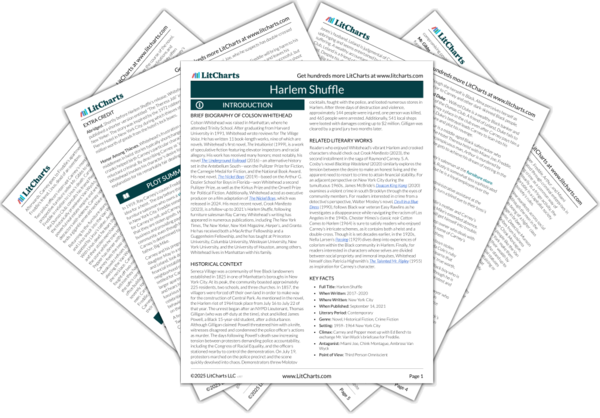Previous
Part 3, Chapter 2
|
Previous
Part 3, Chapter 2
|
Harlem Shuffle: Part 3, Chapter 3 Summary & Analysis |
Next
Part 3, Chapter 4
|


Upgrade to unlock the analysis and theme tracking for all of Harlem ShuffleHarlem Shuffle!
Get LitCharts A+